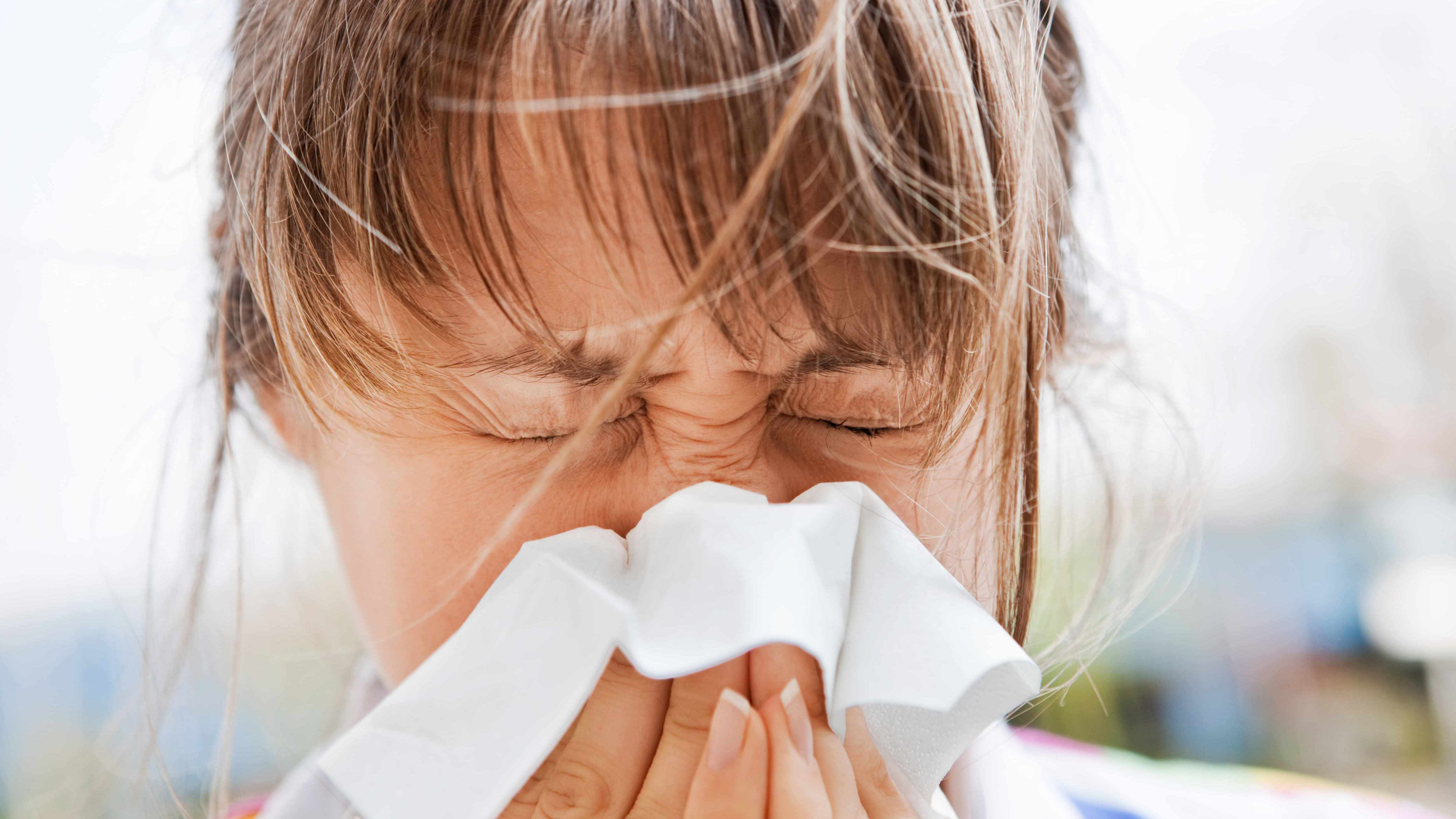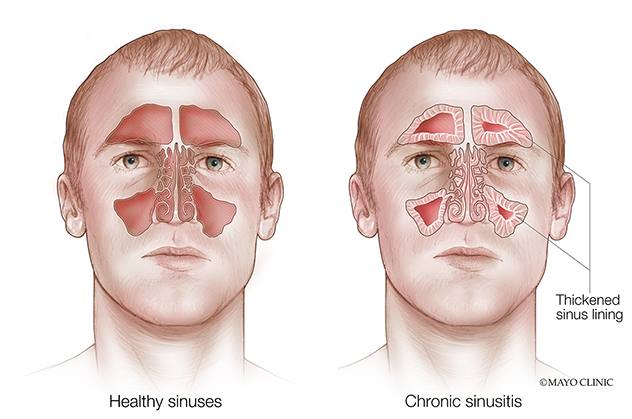-
Featured News
Home Remedies: Steps to help relieve sinusitis

These self-help steps can help relieve sinusitis symptoms:
- Drink fluids.
Water or juice will help dilute mucous secretions and promote drainage. Avoid beverages that contain caffeine or alcohol, as they can be dehydrating. Drinking alcohol can also worsen the swelling of the lining of the sinuses and nose. - Moisten your sinus cavities.
Drape a towel over your head as you breathe in the vapor from a bowl of hot water. Keep the vapor directed toward your face. Or take a hot shower, breathing in the warm, moist air. This will help ease pain and help mucus drain. - Apply warm compresses to your face.
Place warm, damp towels around your nose, cheeks and eyes to ease facial pain. - Rinse your nasal passages.
Use a specially designed squeeze bottle (Sinus Rinse, others) or neti pot. This home remedy, called nasal lavage, can help clear your sinuses. If you make your own rinse, use water that's contaminant-free — distilled, sterile, previously boiled and cooled, or filtered using a filter with an absolute pore size of 1 micron or smaller — to make up the irrigation solution. Also be sure to rinse the irrigation device after each use with contaminant-free water and leave open to air-dry. - Rest.
This will help your body fight infection and speed recovery. - Sleep with your head elevated.
This will help your sinuses drain, reducing congestion.
 Take these steps to help reduce your risk of getting acute sinusitis:
Take these steps to help reduce your risk of getting acute sinusitis:
- Avoid upper respiratory infections.
Minimize contact with people who have colds. Wash your hands frequently with soap and water, especially before your meals. - Manage your allergies.
Work with your health care provider to keep symptoms under control. - Avoid cigarette smoke and polluted air.
Tobacco smoke and other pollutants can irritate and inflame your lungs and nasal passages. - Use a humidifier.
If the air in your home is dry, such as it is if you have forced-air heat, adding moisture to the air may help prevent sinusitis. Be sure the humidifier stays clean and free of mold with regular, thorough cleaning.
When to see a health care provider
Most people with acute sinusitis don't need to see a health care provider but you should seek medical care if you have any of the following:
- Symptoms that don't improve in a few days or worsen
- A persistent fever
- A history of recurrent or chronic sinusitis
You may have several episodes of acute sinusitis, lasting less than four weeks, before developing chronic sinusitis.
This article is written by Mayo Clinic staff. Find more health and medical information on mayoclinic.org.







